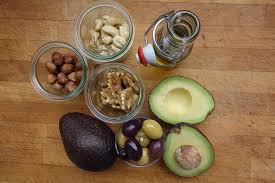Omega-3s & heart health
With heart disease being the leading cause of death in the U.S., according to the Centers for Disease Control and Prevention, it’s time to listen to your heart. As part of a healthy lifestyle that includes exercising, getting enough sleep, not smoking and having an overall healthy diet, omega-3s – and specifically EPA and DHA – may help you maintain healthy blood pressure, support healthy triglyceride levels and manage your risk of heart disease.
Omega-3s at work in the heart
The omega-3s EPA and DHA found in fatty fish and omega-3 dietary supplements help to maintain healthy blood vessels and may help reduce chronic inflammation throughout the body. This inflammation can damage your blood vessels and potentially lead to heart disease.
With more than 2,000 studies conducted on omega-3s and heart health, the totality of evidence suggests that there is a positive correlation between increased omega-3 intake and heart health benefits.
Omega-3s and blood pressure
Emerging research has shown important vascular effects of omega-3s, including a reduction in blood pressure, increased dilation of the coronary arteries and improved function of the (endothelial) cells that line the inner surface of the blood vessels.
More about omega-3s and blood pressure »
Omega-3s and triglycerides
One of the most important and consistent effects of EPA and DHA is evident in their role in reducing blood triglyceride levels as high triglycerides are a risk factor for cardiovascular disease. The triglyceride-lowering effect of omega-3s is observed in individuals with normal blood lipid levels, but is even more dramatic in those with elevated triglycerides.
For example, a study published in the American Journal of Clinical Nutrition found that high-doses of EPA and DHA omega-3s (3,000 mg per day) compared to placebo may help lower blood triglyceride levels.
Omega-3s and cardiovascular events
EPA and DHA omega-3s are integral as structural components of cells within your heart and we are still learning about all of their heart health benefits.
Unfortunately, most Americans do not get enough EPA and DHA omega-3s in their daily diet. A scientific paper published in PLoSMed(Public Library of Science) estimated that in 2005 between 72 and 96 thousand people – in the U.S. alone – died from cardiovascular events due to insufficient intake of omega-3s. Cardiovascular events are characterized by any incident that may cause damage to the heart muscle


